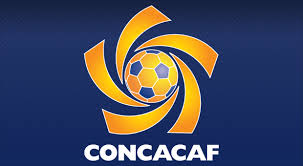By Paul Nicholson
December 29 – The confederation that can’t seem to put a governance foot in the right direction is now being accused by its own federations of breaking its own statutes by not appointing an interim president.
The complaints have forced CONCACAF’s acting general secretary Ted Howard to issue a letter to all federations arguing that the decision taken by the confederation’s executive committee not to appoint an interim president is the best decision for the governing body of north and central America and the Caribbean.
“In acts of unity and in the best interests of the confederation, both vice presidents, who were eligible to accede to the office, agreed that the position should only be filled through an election and not by appointment,” said Howard.
This essentially leaves the confederation under management of the executive committee but, perhaps more crucially, under the significant influence of its American consultants; law firm Sidley Austen LLP, and management consultants Alvarez & Marsal. The confederation also has brought in a PR consultancy to take over its press relations management.
Between them the consultants earn a whopping $1.4 million per month – more per month than national associations receive in a year from central grants. So far the consultants have earned more than $6 million and will likely earn close to $15 million before the election of a new president, in May 2016. CONCACAF’s budget was set at $65 million for 2016 at its May congress earlier this year, before the corruption crisis became public.
There has been growing concern in the Caribbean that the US-centric takeover of the confederation since the arrests of CONCACAF leaders last May has reduced the ability of other member nations to participate in the decision-making process. Their fear is that if continued to its logical conclusion the result will be to return many of the Caribbean’s emerging federations to obscurity and further long term football poverty.
The decision to not appoint an interim president through to the May 2016 elections has been officially protested against by a letter from St Martins FA president Fabrice Baly, who instructed his legal team to review the CONCACAF statutes.
It is his contention that the exco decision breaks statute 31.11 which says: “If the position of the President becomes vacant the most senior vice president shall fill the position until the next Ordinary Congress. In such a case, the Congress shall elect a new president to complete the remaining term of mandate of the former President.”
The two vice presidents who declined to take the position after “discussion” within the exco were Justino Compean from Mexico and Capt Horace Burrell from Jamaica.
Howard in his letter, says: “No other member in the EXCO nor any other person in the confederation has the authority or the right to fill the office in the interim.”
This isn’t disputed by Baly, however he argues that the presence of a president is enshrined throughout the statutes and that without a president in place the confederation is breaking every one of its own laws. As one insider said: “If you don’t accept and respect the statutes, whether you like them or not, you are in effect giving up the rule of law.”
Baly argues that: “It is difficult to conclude that the unanimous and unilateral decision taken by EXCO can be anything but NULL and VOID. The statutes could not have been followed. If the senior vice presidents are unwilling to assume the role of president as constituted under the Statutes it seems to my Association that there is the need for a urgent Extra Ordinary Meeting of Congress in the new year to (a) thrash out the concerns honestly and openly and (b) elect an interim president for 6 months or a year (whatever is the best alternative) with the mandate to implement vigorous and transparent reforms that are relevant to and in the best interest of CONCACAF today and in the future.”
In other correspondence seen by Insidewordfootball and not in response to Baly’s letter but to a similar query by CFU president Gordon Derrick that was circulated widely by Sidley and Austin partner Samir Gandhi, Gandhi argues: “I beg to differ as to whether this is a violation of the statutes. Further, as we both agree, the EXCO has made this choice in the best interests of the Confederation and its members.”
The point Gandhi is refusing to acknowledge is that the Caribbean member associations, who constitute the majority of CONCACAF’s member associations, are not convinced by this decision. But his answer is unequivocal in his belief that the decision will stay as it is. Gandhi is not an elected official within the CONCACAF structures.
FIFA has already stepped in at two of the central American federations – Guatemala and Honduras – with ‘normalisation’ committees. CONCACAF has said it supports this decision and will work with whatever FIFA requires to bring these federations back into compliance.
Howard concludes his letter to federations saying that: “The Exco believes that in these difficult times for the confederation and for the world of football, it is vital that the organisation be governed on the strictest standards of transparency, accountability and effectiveness in advance of the Ordinary Congress and beyond. Now is the time for our confederation to stand united and the EXCO believes that collective governance will further this goal.”
CONCACAF will elect a new president in May 2016.
Contact the writer of this story at moc.l1745672570labto1745672570ofdlr1745672570owedi1745672570sni@n1745672570osloh1745672570cin.l1745672570uap1745672570
